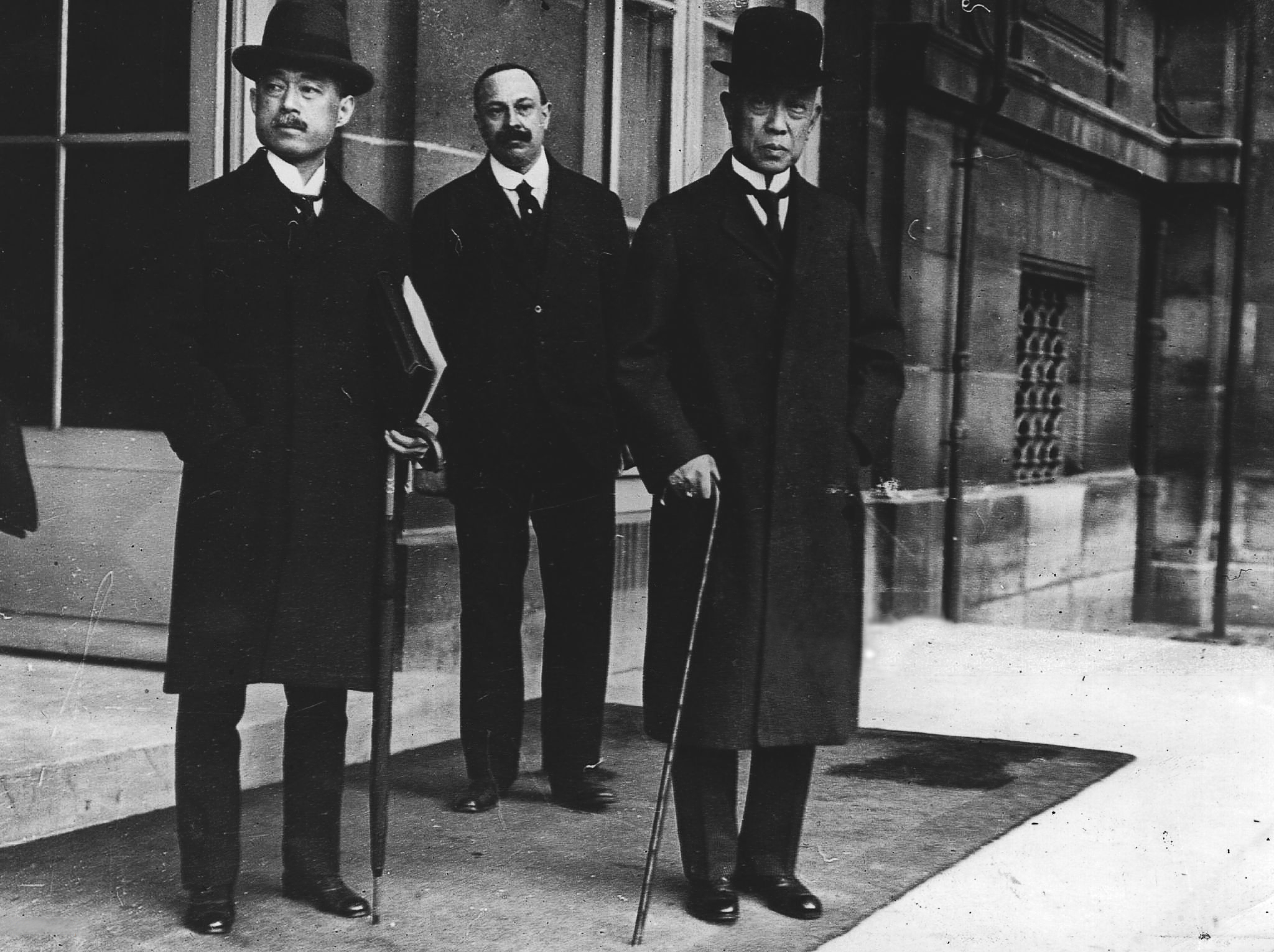Genrō on:
[Wikipedia]
[Google]
[Amazon]
 was an unofficial designation given to certain retired elder
was an unofficial designation given to certain retired elder
 was an unofficial designation given to certain retired elder
was an unofficial designation given to certain retired elder Japan
Japan ( ja, 日本, or , and formally , ''Nihonkoku'') is an island country in East Asia. It is situated in the northwest Pacific Ocean, and is bordered on the west by the Sea of Japan, while extending from the Sea of Okhotsk in the n ...
ese statesmen who served as informal extraconstitutional advisors to the emperor, during the Meiji, Taishō, and Shōwa eras in Japanese history.
The institution of ''genrō'' originated with the traditional council of elders ('' Rōjū'') common in the Edo period
The or is the period between 1603 and 1867 in the history of Japan, when Japan was under the rule of the Tokugawa shogunate and the country's 300 regional '' daimyo''. Emerging from the chaos of the Sengoku period, the Edo period was character ...
; however, the term ''genrō'' appears to have been coined by a newspaper only in 1892. The term is sometimes confused with the '' Genrōin'' (Chamber of Elders), a legislative body
A legislature is an assembly with the authority to make laws for a political entity such as a country or city. They are often contrasted with the executive and judicial powers of government.
Laws enacted by legislatures are usually known ...
which existed from 1875–1890; however, the ''genrō'' were not related to the establishment of that body or its dissolution.
Experienced leaders of the Meiji Restoration
The , referred to at the time as the , and also known as the Meiji Renovation, Revolution, Regeneration, Reform, or Renewal, was a political event that restored practical imperial rule to Japan in 1868 under Emperor Meiji. Although there were ...
were singled out by the Emperor
An emperor (from la, imperator, via fro, empereor) is a monarch, and usually the sovereign ruler of an empire or another type of imperial realm. Empress, the female equivalent, may indicate an emperor's wife ( empress consort), mother ( ...
as ''genkun'', and asked to act as Imperial advisors. With the exception of Saionji Kinmochi, all the ''genrō'' were from medium or lower ranking ''samurai
were the hereditary military nobility and officer caste of medieval and early-modern Japan from the late 12th century until their abolition in 1876. They were the well-paid retainers of the '' daimyo'' (the great feudal landholders). They ...
'' families, four each from Satsuma and Chōshū, the two former domains that had been instrumental in the overthrow of the former Tokugawa shogunate
The Tokugawa shogunate (, Japanese 徳川幕府 ''Tokugawa bakufu''), also known as the , was the military government of Japan during the Edo period from 1603 to 1868. Nussbaum, Louis-Frédéric. (2005)"''Tokugawa-jidai''"in ''Japan Encyclopedia ...
in the Boshin War
The , sometimes known as the Japanese Revolution or Japanese Civil War, was a civil war in Japan fought from 1868 to 1869 between forces of the ruling Tokugawa shogunate and a clique seeking to seize political power in the name of the Imperi ...
of the Meiji Restoration
The , referred to at the time as the , and also known as the Meiji Renovation, Revolution, Regeneration, Reform, or Renewal, was a political event that restored practical imperial rule to Japan in 1868 under Emperor Meiji. Although there were ...
of 1867–1868. The ''genrō'' had the right to select and nominate Prime Ministers to the Emperor for approval.
The first seven genrō were all formerly members of the '' Sangi'' (Imperial Council) which was abolished in 1885. They are also sometimes known to historians as the Meiji oligarchy, although not all of the Meiji oligarchs were ''genrō''.
The institution expired in 1940, with the death of the last of the ''genrō'', Saionji Kinmochi.
List of genrō
See also
*Council of Elders of the Bundestag (Germany)
The Council of Elders (german: Ältestenrat) of the German parliament Bundestag is a joint deliberative body which includes the following members:
* President;
* Vice presidents;
* Bundestag members appointed by parliamentary groups in proportion ...
* Privy council
A privy council is a body that advises the head of state of a state, typically, but not always, in the context of a monarchic government. The word "privy" means "private" or "secret"; thus, a privy council was originally a committee of the mo ...
References
* * * {{DEFAULTSORT:Genro Japanese politicians Politics of the Empire of Japan Japanese historical terms